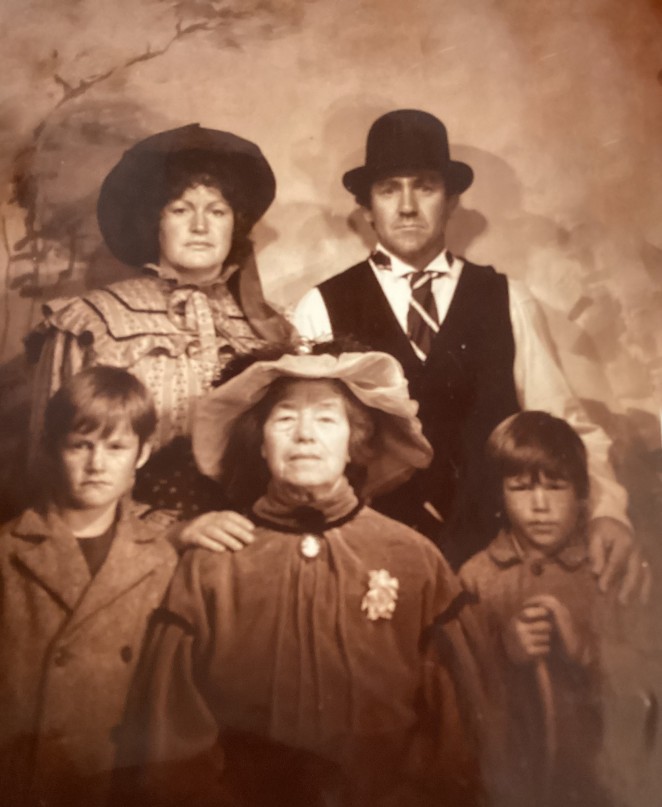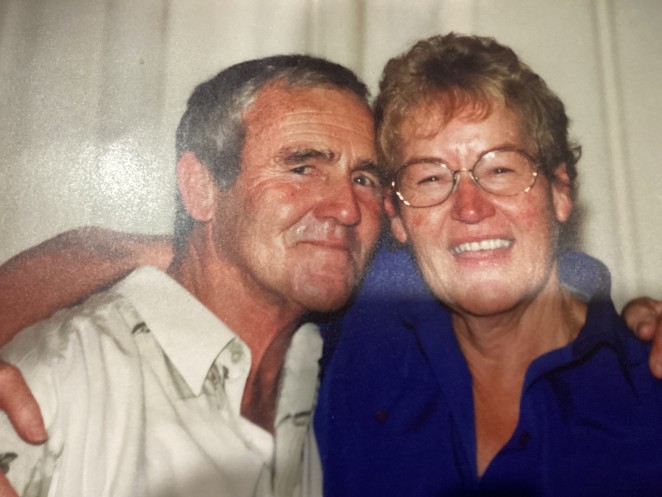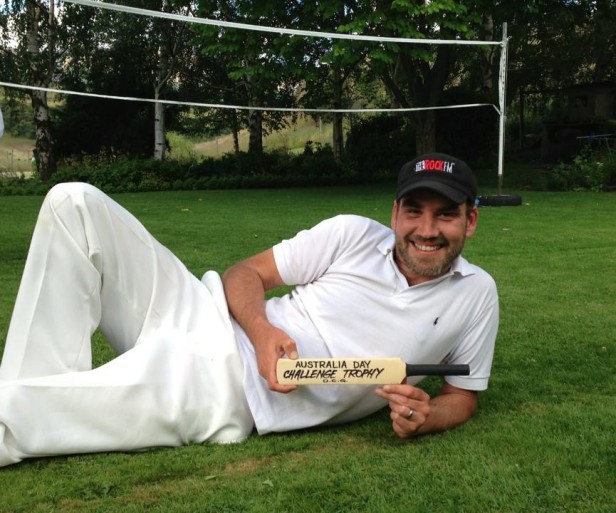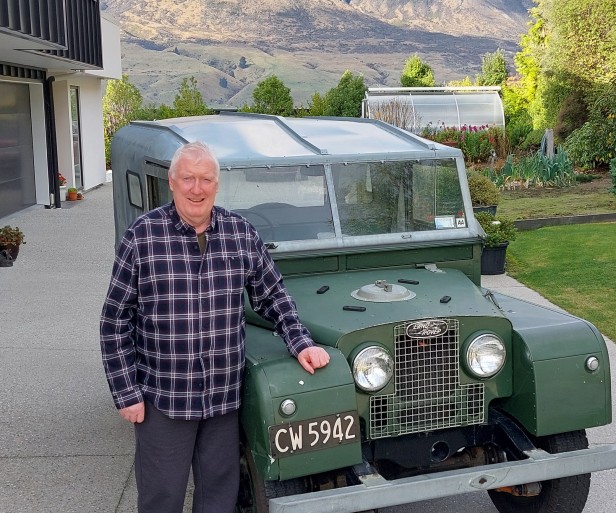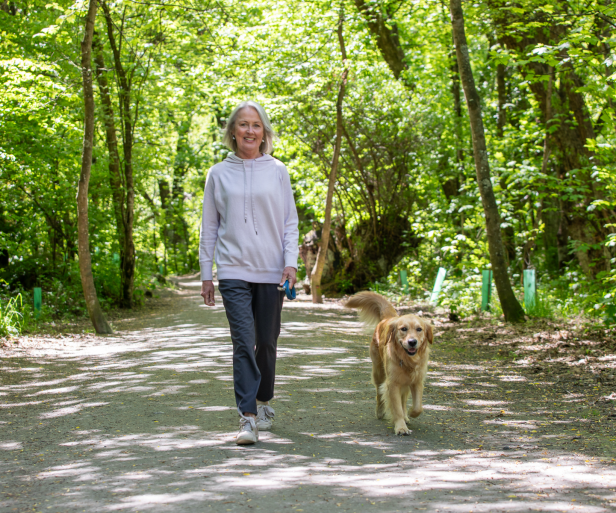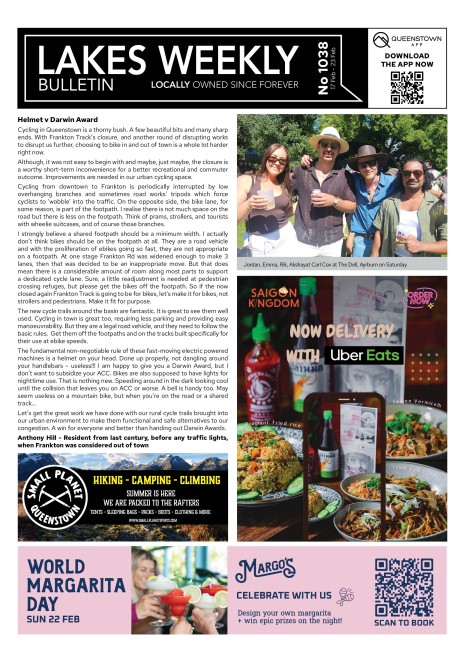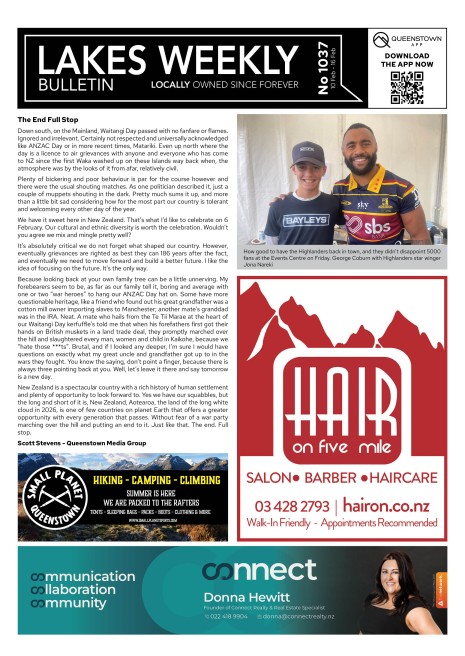Peter Norris - The good old days - Queenstown of old

Peter Norris is what you’d call ‘old school Queenstown’, born just before World War II broke out in 1939, in a town of just over 1500 people, the solo local cop never far behind him and his mates and their boyhood antics.
His earliest memory was at six: “Two aeroplanes came roaring across the town and there was lots of hilarity. People were yelling and carrying on downtown.” The war had ended.
Growing up in his mother’s family home – Grand View on the Western Terrace at the top of Lake Street where his aunties had run a boarding house, Queenstown was no place for sissies back then.
Sold 15 years ago, the house was lovingly restored as a winery building – the worn wooden groove in the front step untouched. There was no insulation, just scrim. “If you didn’t get the windows up before winter, they’d stay partially open, frozen until spring, as they went up and down with weights.”
Peter’s mum had played the piano at the picture theatre for the silent movies. “If the cowboys were chasing the Indians she’d play faster. She played the whole score.”
Before marrying Peter’s dad – a Coronet Peak Station musterer and Skippers truckie, she’d head up to Skippers on a horse-drawn dray with about 23 others where their band played all night at the Skippers Hall, arriving back just before sunrise.
A strong sportsman, Peter represented Queenstown District High School in rugby around Central Otago. School skiing wasn’t as classy as now, a nutcracker rope tow – Peter and his mates skiing the tow wide to dislodge the “upmarket Canterbury people” behind, sending them flying off into the snow.
Training with the New Zealand Junior Race Squad, a serious accident at 15 put paid to that when Peter crashed into the rocks at Rocky Gully, missing a corner. He spent five months in hospital with a fractured hip, then flown to Dunedin for surgery, followed by six months’ rehabilitation.
At 19, he narrowly escaped death when heading to a rugby match in Cromwell with teammates. “Just before Roaring Meg the car steering wheel gave way and we went over the side, rolling four times and bouncing down towards the Kawarau, miraculously stopping in a rosehip bush. I flew out the back window and landed in bushes.” It took a week for the two black eyes to appear.
Growing up was one big adventure, the Fire Brigade once having to rescue Peter at 10 after he climbed a tall pine tree and got stuck.
“Us kids caused havoc in the town, but we always had a pact not to go far enough to ruin our family name,” he grins. “It was either us or the Hood boys.”
Sergeant Leo Daly was unimpressed. No drinking within 200m of a dance hall, but somehow they always sneaked in.
However, as youngsters Daly usually won. “We made a makeshift bomb with an old glass marble top lemonade bottle, putting carbide and a bit of water in it,” Peter says. “We shoved it under Horne Creek bridge when the trout were spawning and ‘Boom’! Up a couple would float.” Once they raced up to the cemetery, to light a fire and cook them up. “Then we heard, ‘Norris! Come with me!’.” The policeman and fisheries officer marched us down to the station, showed us the cell and Daly threatened, ‘Next time you’re spending time in here’.” No more fish explosions.
Peter had to abandon his carpentry apprenticeship after the ski accident, but worked at the old stone Buckham’s Brewery, later working as a builder in Invercargill and at Makarewa Freezing Works. He met wife of 57 years Christie in Invercargill.
He did maintenance work at Travelodge and was a part-time barman at the White Star Hotel, working nightshifts for some years on the Post Office manual telephone exchange.
On New Year’s Day, 1970, Peter spotted smoke pouring from the White Star across the road, hitting the fire alarm and sending his switchboard alight with fire volunteers ringing to ask where the fire was.
The hotel was badly burnt, but Peter managed to retrieve stone from the fireplace and built a barbecue on his own Lake Street property.
Exchange operators harboured many town secrets. “Some of us would listen to people’s juicy conversations,” he says. “A well-known man once rang and said, ‘Pete, dial this number and if a guy answers say it’s a mistake. If it’s a woman put me through.”
In 1980 Peter and Christie moved to Cambridge beginning a career managing rest homes, turning their beautiful historic Matamata home into a rest home, making several North Island moves, before growing Leucadendron’s for the Japanese market at Te Puna.
They’ve been retired in Papamoa, near Tauranga, for 10 years.
While he doesn’t miss the cold winters, Peter unfortunately had to return to his old home base last month (August) for the funeral of his elder brother Beau, just Peter and and the youngest of his two sisters, Eileen, flying the family flag now.
